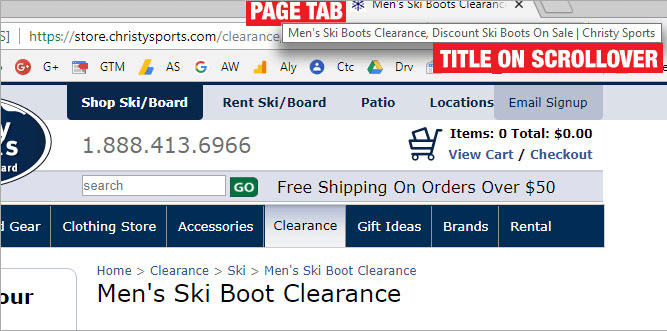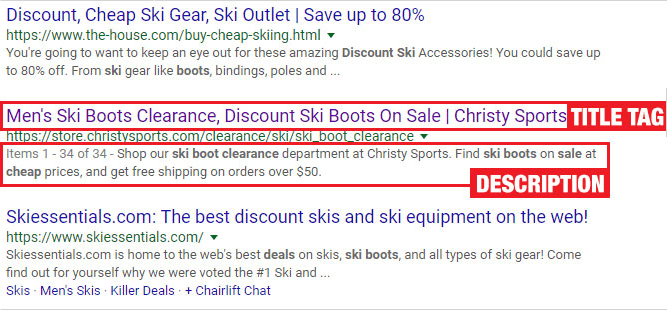What Search Engine Optimization is, and what it is not
Although SEO is a very commonly-known term, there is a lot more misinformation out there in the world about it, then there are facts. So let’s pull aside part of the curtain of mystery, and shed some light on just exactly what search engine optimization is, and what it is meant to do.
Specific targeting is the key to creating the right results
First of all, let’s start with the last point made above: what exactly SEO is meant to do. Actually, it’s fairly straightforward. The purpose of properly-executed SEO is to bring people to your website who are interested in what you have to offer. That’s it.
Sounds simple, doesn’t it? And in essence, it is. But how this goal is achieved, is actually quite complex. We’ll try to break it down, step-by-step.
Choosing the right keywords
Truth be told, even that subhead is misleading, because it gives the impression that you are addressing single words. What you really want to do is work with multiple-word phrases. For example, suppose you run a shop that sells inexpensive ski boots (as well as skis and other accessories).
Wrong: skis
[Slightly] Better: ski gear
Right: discount snow ski boots for sale
The first [single-word] term is so generic, it could be used to signify hundreds of different things. So even if you could get placement for this kind of general term (which, at best, would take an extraordinary amount of working time) it wouldn’t do you much good.
However, the last term is much more targeted; someone using this phrase to search is certainly likelier to be a customer for you. Not to mention that you have a greater chance of getting good search placement for a longer, more specific term like this.
Lastly, remember that as Google Analytics data comes in, you will gain new insight into which terms are viable. Thus, you will constantly be adjusting the terms for which you are trying to get placement.
Tagging the existing content on your website
In most cases, it is not practical to completely rewrite the text on your site for optimum SEO effectiveness. However, there are a few critical tags you can put into place that will help immensely. The two most important are the Title tag and the Description.

Title tag
The most powerful item by far, the title tag appears in two crucial places: 1) the top of your browser window (or browser windows tab; you may need to scroll your cursor over it to see the Title tag); and 2) the link at the top of each individual search listing on a Google results page. The second place it appears is especially critical, as this is integral in determining whether or not viewers will click on the link to your site among all the other choices.

Your title tag is also a strong factor in getting a good rank for your page in the search engine listings.
Description
This is what appears as a one or two-sentence blurb underneath the Title tag in the search results listings. Like the Title tag, it plays a vital role in encouraging a user to click on your link in the search results.
For both of these items, it is important to be specific (see “Choosing the right keywords” above). But don’t just pick keywords you think are “good;” they must match the content of the actual page.
Content, content, content
You know the old real estate adage, “location, location, location”? That same emphasis is true about the content on your website. And by content, two things are meant: 1) the “visible” text on your pages (more about this below); and 2) any videos you have.
Visible text
it’s easy to tell if the text on your website is something that search engines can “see.” Try to select the text with your cursor. If you can scroll over the letters one-by-one, it means the text is “visible.” However, if the text comes out in “blocks,” that means it is “graphic text,” and search engines cannot decipher it.
Videos
Having videos on your site can definitely help your SEO. Ideally, the videos would be uploaded to your YouTube channel (make sure to create a proper business channel on YouTube), and then embedded into your site pages.
Third-party citations
This covers any mention of your company name on an outside website (whether or not it is an actual link), as well as links from other sites to yours. This is such a complex and important topic that it will be covered in another article.
Time and tracking
Search Engine Optimization is a marathon, not a sprint. If you are looking for short-term results, there are other methods that are better suited — like PPC. But if you are willing to put in both the people-hours and the length of time you’re willing to commit to, SEO can be incredibly effective.
To determine how effective — as well as to enhance your efforts — use some of the many tracking vehicles available to analyze your progress. Some of the best are Google Analytics, Google Search Console, Google AdWords, and SEOMoz.
Final notes
SEO, while complex, is not nuclear physics. If you put in the time, are willing to do some research, and have patience, you can certainly get satisfactory results on your own. However, it might pay to hire a professional. It could save you a lot of headaches!






